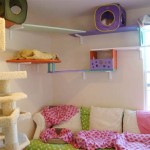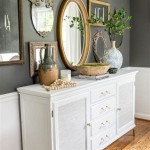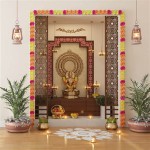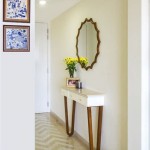Modern Hotel Room Decor: Trends and Inspiration
In the realm of hospitality, hotel rooms are more than just places to sleep. They serve as sanctuaries for weary travelers, offering comfort, convenience, and a glimpse into the destination's culture. Modern hotel room decor, therefore, plays a crucial role in shaping the guest experience, creating an ambiance that is both stylish and functional. This article delves into the key trends shaping modern hotel room decor, highlighting the principles and elements that contribute to a successful design.
Prioritizing Functionality and Comfort
Modern hotel room design prioritizes functionality over excessive adornment. The focus is on creating spaces that are user-friendly, efficient, and cater to the diverse needs of travelers. Gone are the days of bulky furniture and cluttered spaces. Instead, modern hotels embrace minimalist aesthetics, utilizing clean lines, streamlined furniture, and multi-functional pieces. This approach maximizes space, ensuring that rooms feel spacious and uncluttered, even in smaller layouts.
Comfort is paramount in modern hotel room decor. Guests seek a retreat from the outside world, and the atmosphere should reflect this desire. Comfortable bedding, plush seating, and ergonomic workspaces create a welcoming environment that encourages relaxation and productivity. Consideration is given to the flow of movement within the room, ensuring that guests can easily navigate and access amenities without feeling cramped or restricted.
Embrace Technology Integration
Technology plays a vital role in enhancing the modern hotel room experience. Gone are the days of bulky televisions and alarm clocks. Instead, modern hotel rooms seamlessly integrate technology into the design, creating a smart and intuitive environment. This integration manifests in various forms, including:
- Smart TVs with streaming capabilities and intuitive user interfaces.
- Smart lighting systems that allow guests to adjust ambient lighting to their preference.
- Digital thermostats for precise temperature control.
- Voice-activated systems for controlling room features, such as curtains and music.
- High-speed Wi-Fi connectivity throughout the room and hotel premises.
These technological advancements create a personalized and convenient experience for guests, enhancing their comfort and satisfaction. Hotels are also incorporating virtual assistants and mobile apps to provide guests with access to hotel services, local information, and concierge assistance, further streamlining the guest experience.
Creating a Sense of Place
Modern hotel room design aims to create a sense of place, reflecting the destination's unique character and culture. This is achieved through a thoughtful selection of colors, materials, and artwork. Local influences are subtly incorporated into the design, evoking a sense of connection to the surrounding environment. Hotels in coastal destinations, for instance, might incorporate nautical themes, natural wood accents, and calming color palettes. Urban hotels, on the other hand, could embrace industrial chic with exposed brick walls, metallic accents, and bold geometric patterns.
This approach to design adds depth and authenticity to the guest experience, immersing them in the local ambiance. Artwork and decorative elements can also provide a captivating glimpse into the local culture, showcasing the region's history, art, or natural beauty. This attention to detail fosters a sense of place and creates a memorable experience for guests.
Sustainability and Eco-Consciousness
Modern hotel room design increasingly emphasizes sustainability and eco-consciousness. This commitment translates into several key design choices, including:
- Using sustainable materials such as bamboo, recycled wood, and natural fibers.
- Employing energy-efficient lighting and appliances.
- Minimizing water usage through low-flow fixtures and water-saving showerheads.
- Encouraging guests to participate in recycling programs.
- Reducing waste by implementing reusable amenities and minimizing single-use plastics.
These environmentally conscious choices contribute to reducing the hotel's ecological footprint and promote responsible tourism. Guests increasingly seek out eco-friendly accommodations, and hotels that prioritize sustainability gain a competitive edge in the marketplace. By embracing sustainable practices, hotels can create a positive impact on the environment while enhancing the guest experience.
Beyond the Basics: Adding Personality and Charm
Modern hotel room decor is not limited to functional necessities. Hotels are also incorporating unique design elements that add personality and charm to the guest experience. These might include:
- Statement pieces of furniture or artwork that create a focal point and add visual interest.
- Creative use of lighting to create different moods and atmospheres.
- Incorporating local art or photography to showcase the region's culture.
- Offering a selection of curated books or magazines for guests to enjoy.
- Providing personalized touches, such as welcome notes or locally sourced snacks.
These details add a personal touch to the guest experience, making the room feel more inviting and memorable. Unique design elements differentiate the hotel from competitors and create a lasting impression on guests, encouraging them to return for future stays.

8 Hotel Room Design Ideas Oppein

Modern Hotel Room Interior Luxury

Modern Luxury Hotel Bedroom Decor Ideas

Get Bedroom Design Ideas From This Hotel Room With A Wood Platform And Built In Sofa Modern

Hotel Room Design Tips For A Luxury Interior At Home

7 Inspiring Hotel Interior Designs Ideas Oppein

Modern Luxury Hotel Bedroom Decor Ideas

Before After Chic Boutique Hotel Interior Design Decorilla

Design Ideas To Steal From Luxury Hotels Hotel

10 Hotel Room Design Ideas To Use In Your Own Bedroom
Related Posts







